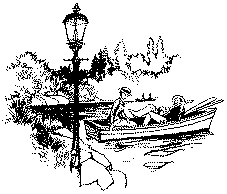 Meet me in St. Louis, Louis.
Meet me in St. Louis, Louis.Meet me at the fair.
Don’t tell me the lights are shining
Anywhere but there.
Dominic Vautier
updated 1/2015
email
One of the interesting aspects of early American music after 1892 were the flashes of insight, inspirations, situations, and stories behind the creation of much of this music, after all a good song needed a good story or so it was said. Some of these stories were certainly anecdotal or invented as a public relations ploy, or used as a marketing gimmick; but in general, we have to be entertained by the interesting tidbits of folklore surrounding the birth of the songs of this period and believe that the stories may have happened. Or so they say:
Here are some:
 Meet me in St. Louis, Louis.
Meet me in St. Louis, Louis.
Meet me at the fair.
Don’t tell me the lights are shining
Anywhere but there.
Sterling & Mills, 1904
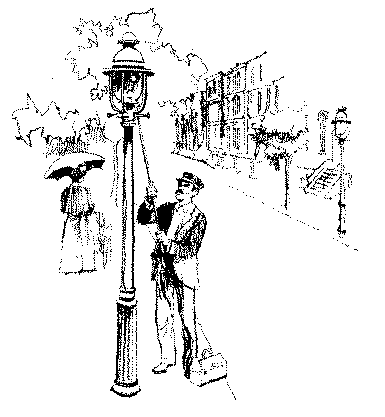 O. Henry was mystery
short-story writer and even with his dying breath he left a big mystery for
us to solve.
O. Henry was mystery
short-story writer and even with his dying breath he left a big mystery for
us to solve.
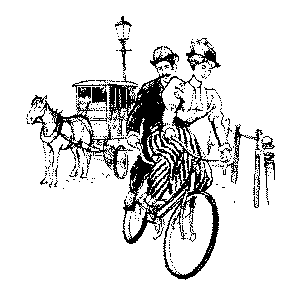 Harry Dacre was sure mad when he had to
pay a tax on his bike when he got off the boat in New York. He got so mad
that he wrote Daisy Bell just to set the
world "spinning" the right way.
Harry Dacre was sure mad when he had to
pay a tax on his bike when he got off the boat in New York. He got so mad
that he wrote Daisy Bell just to set the
world "spinning" the right way.
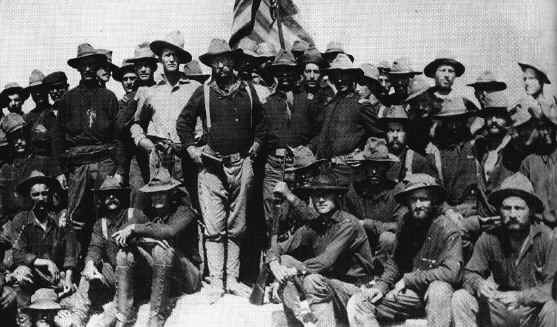 After 896 almost every minstrel show began its
program with Hot Time in the Old Town
Tonight. Two years after it
became popular, American soldiers adopted
Hot Time as their unofficial Spanish American War theme song.
After 896 almost every minstrel show began its
program with Hot Time in the Old Town
Tonight. Two years after it
became popular, American soldiers adopted
Hot Time as their unofficial Spanish American War theme song.
When Roosevelt became president he requested that the hateful song be stricken from the record because it was “ragtime” and not real music.
 In 1939 Bing Crosby did a flaming torch song called Melancholy Baby.
But the song was not new at all.
In 1939 Bing Crosby did a flaming torch song called Melancholy Baby.
But the song was not new at all.
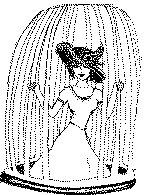 The ill-begotten "Birdcage" song
was one of Harry Von Tilzer's best and most popular pieces and it was done
as a big joke. What had begun as a
complete tearjerker put-on turned out to be the biggest hit of 1900 and had the
questionable distinction of ringing in the new decade and century.
The ill-begotten "Birdcage" song
was one of Harry Von Tilzer's best and most popular pieces and it was done
as a big joke. What had begun as a
complete tearjerker put-on turned out to be the biggest hit of 1900 and had the
questionable distinction of ringing in the new decade and century.
 Charlie Harris got the idea for his song After
The Ball during an incident he had witnessed in Chicago some years
earlier while attending a ball. It turned out to be the
greatest song of his life.
Charlie Harris got the idea for his song After
The Ball during an incident he had witnessed in Chicago some years
earlier while attending a ball. It turned out to be the
greatest song of his life.
Before his expected death Paul Dresser found the girl of his dreams in his swan
song, My Gal Sal.
 Barney Fagan was immediately struck by the unusual
floppidy-flop rhythm that a loose bike pedal created.
He
suddenly realized that he
could make music he was working on fit into this crazy “ragged” floppidy-flop rhythm. So Barney wrote the first syncopated ragtime song My
Gal is a High-born lady.
Barney Fagan was immediately struck by the unusual
floppidy-flop rhythm that a loose bike pedal created.
He
suddenly realized that he
could make music he was working on fit into this crazy “ragged” floppidy-flop rhythm. So Barney wrote the first syncopated ragtime song My
Gal is a High-born lady.
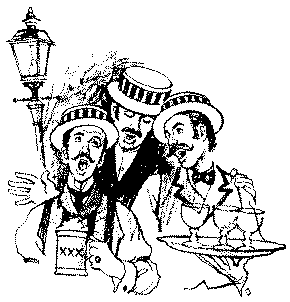 Sweet
Adeline was almost banned in Boston.
Sweet
Adeline was almost banned in Boston.
 Hot-footed Casey
Jones riding his Cannonball Express steamed into American legend.
Hot-footed Casey
Jones riding his Cannonball Express steamed into American legend.